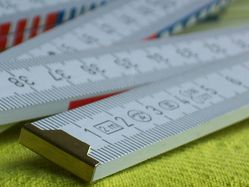What should your GFR be at 70 years old?
What should your GFR be at 70 years old? It may be 70-75 ml/min (+/- 10 ml/min) or less. This compares to the ‘normal’ level of 90-120 ml/min, according to the CKD/GFR classification. But that is a (scientific-ish) estimated average number for people of any age, gender and race. Therefore, not surprisingly, studies show approximately […]
What should your GFR be at 70 years old? Read More »

